POST+CAPITALIST CITY 1#Shop - Winning Projects
By Bustler Editors|
Thursday, Oct 18, 2012

Related
Two winning projects and one special mention have recently been announced in the first competition cycle of POST+CAPITALIST CITY, #1Shop. This international ideas competition called for proposals which re-think the concept of the shop, the way we consume, and a city with alternative shopping systems and shopping culture—from small interventions up to global concepts.
If you are interested in participating in the most current competition cycle of POST+CAPITALIST CITY, #3Live which launched earlier this week, click here for more details. Submissions for #3Live are due by January 15, 2013, and the results will be announced in mid-February here on Bustler.
The POST+CAPITALIST CITY 1#Shop jury which met in Paris, France was composed of Laurent Machet, Architect and professor assistant in Paris; Marie Douce Albert, Journalist; Philine Schneider, Architect, co-founder of Collage-Lab; Joanne Pouzenc, Architect, co-founder of Collage-Lab; Annika Janthur, Architect, member of Collage-Lab; and Ioana Mihailescu, Architect, editor for Collage-Lab.
The jury explored the submissions individually and quickly realized how diverse the proposals were. Three main topics crystalized which were further explored among the remaining finalist projects:
- Reducing distances between the consumer and the producer by using the transportation system
- The transformation of human behavior towards consumerism and the sharing culture
- re-Marketing / re-Branding / de-Marketing / de-Branding
These are the winning proposals:
1st prize: Workshop - Shop we share
by KuanHao Chen, JuiHsuan Hou, Fa Likitswat (Taiwan / Thailand)
Jury report: "This project presents really simply a clear idea the jury enjoyed: Happiness Matters. In fact, amongst similar projects dealing with the enhancement of human interaction in a "next" shopping culture, this one was the only one claiming it and introducing simply the notion of quality of life. The position of the authors towards our contemporary situation denotes also from a very good cultural understanding and fineness: they define the current system as a "capital system" composed by both Capitalism and Communism. The subjective comparison of Capitalism and Communism through the observation - although seemingly naive - that one is based on basic needs, the other one on social needs and both need to co-exist give them a line to draw the project and make it coherent until the end. They propose a simple shift from a "capital system" to a "micro-sustainable system", based on the same elements but in other proportions, introducing at the same time a notion of scale.
The spatial proposal is non-characteristic. Whereas a context could be missing, the simplicity of the spatial disposal increases in fact the potential of this project: one could think about the reuse of the existing commercial malls while others could think about applying this proposal to an urban fabric. It is about enhancing human interaction and creating space for "productive" meeting, where each one share skills and tools as well as time and space."
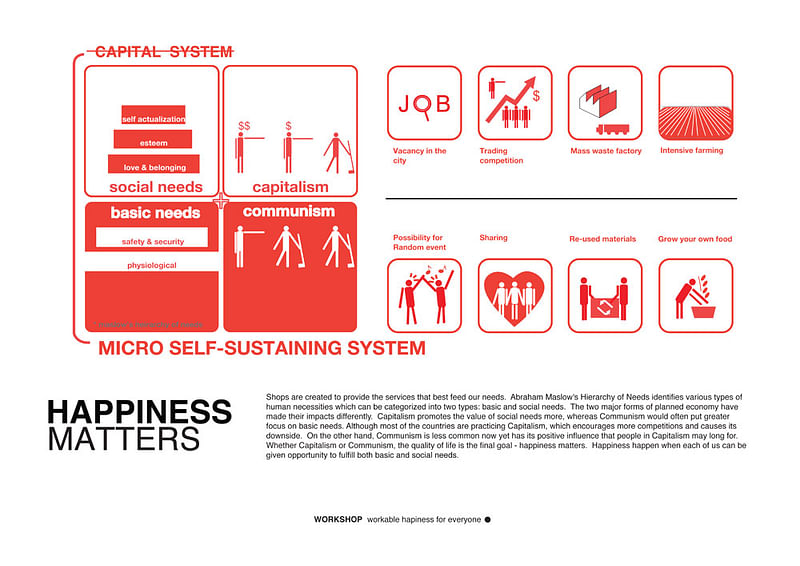

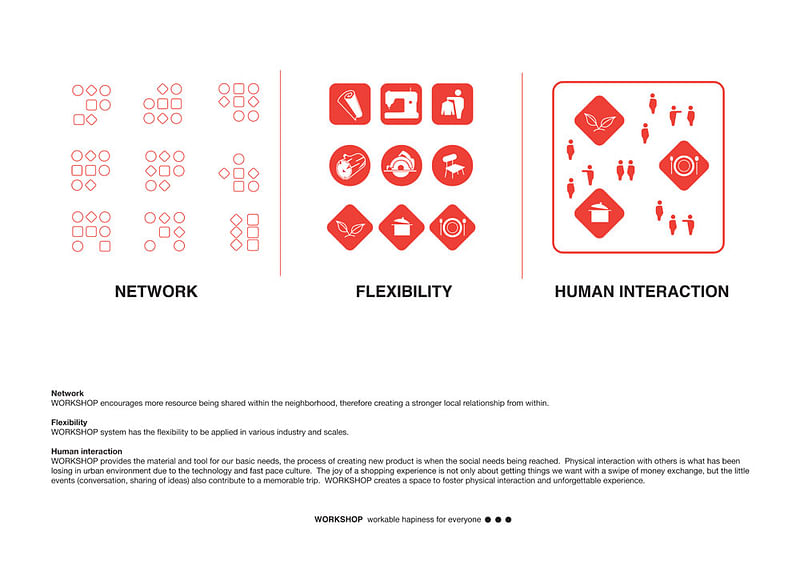

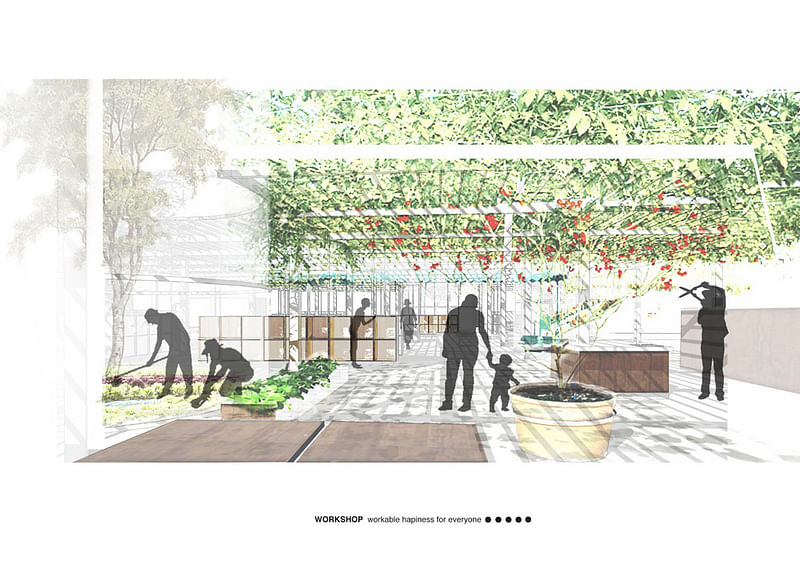
2nd prize: Prototyping Transformation
by Peter Salim (Indonesia)
Jury report: "Along the different proposals, a common observation was clear: in a post+capitalist city, we would have to change our personal behavior towards consumerism to make the system sustainable. Whereas some of the projects were based on the human ability to operate this change by itself by collectively "being conscious", this project - ironically - chose to use the already existing consumerist tools to impose the change by operating it from above.
The authors propose a transformation in different acts, time framed. The introduction of a consumption device - the VISOR - thought through to be a tool for a responsible consumption - linking what we need with what we can afford and transforming the shopping mall experience as a non-social event - created several arguments amongst the jury. While it is a very pessimistic vision of human nature, enhancing the role of hierarchy and control, it also expresses with creativity and smartness a solution for a progressive transformation, focusing on a general problem: the transformation of the shopping mall. Whereas the shopping mall seems not to be a major problem in European culture, it is or will be one of the major issue in most parts of the world. When a city lacks of free urban public spaces, the shopping mall becomes "public space".
This project is pointing out the problem of attractiveness of shopping malls and uses the same methods marketing and management used for their global success to make them unattractive in order to operate progressively a change and restoring the difference between shopping and leisure.
Also, the proposal as a prototype balances the notion of morality: What if this would work?
A question however remained to make the proposal concrete and complete: to who would it profit to make the shopping mall unattractive?"
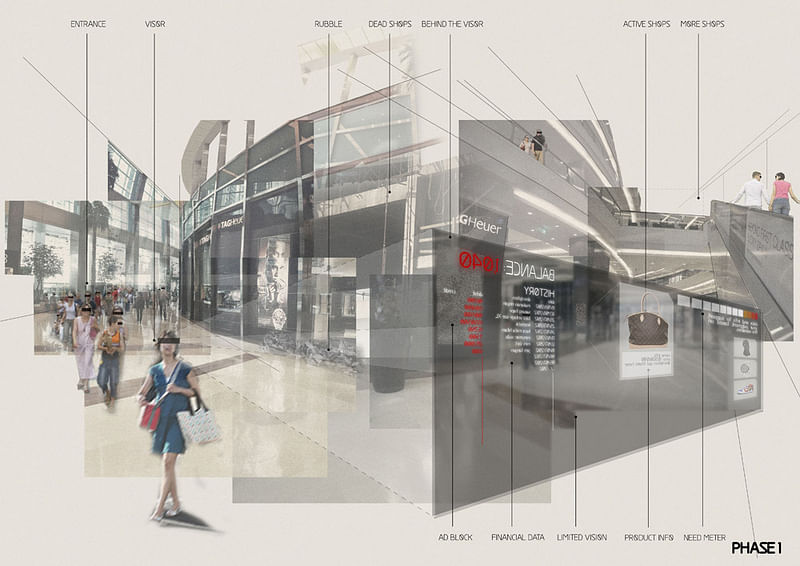
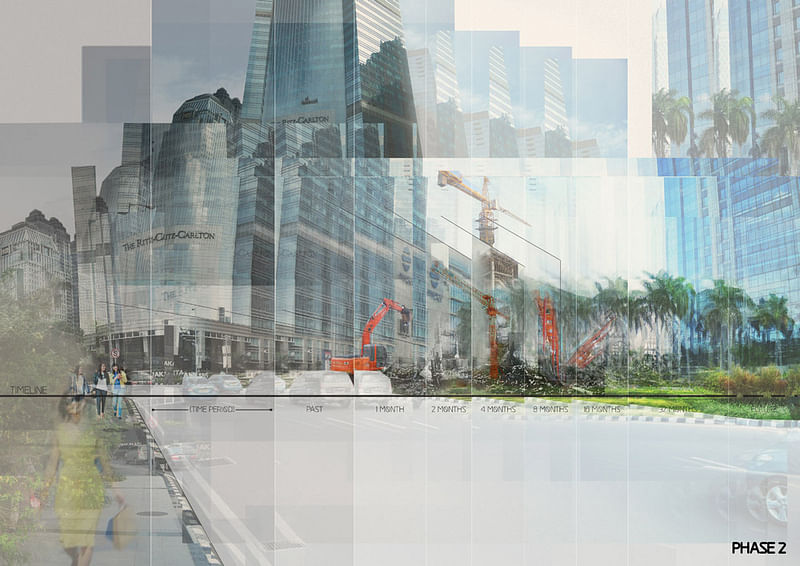
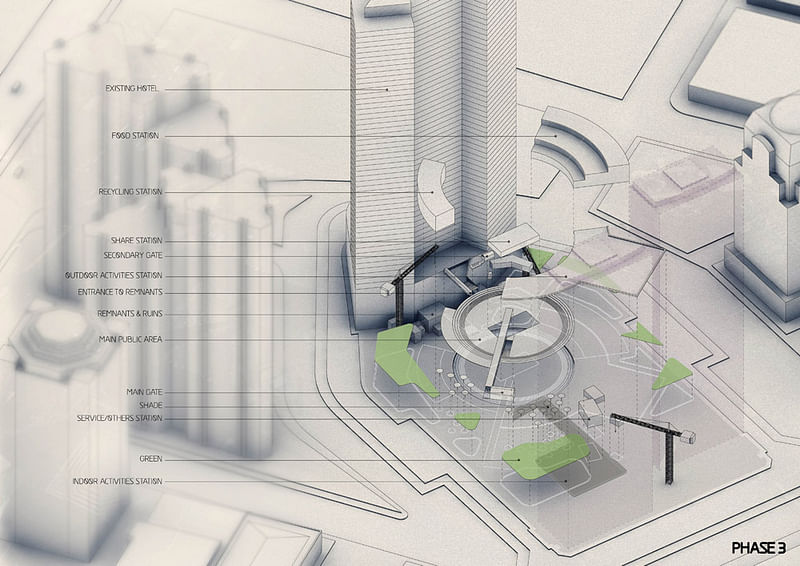
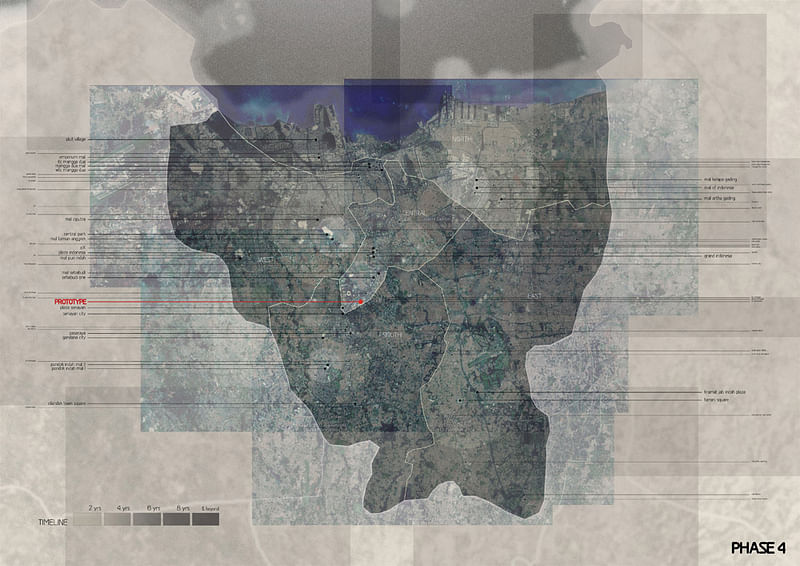
Special Mention: CAL - The City Assembly Line, An attempt to increase social awareness
by Susanne Trumpf, Judith Frankenberg (Germany)
Jury report: ""Reducing distances between the consumer and the producer" has been one of the topics broadly explored through this competition. Most of the proposals according to this topics were orientated to bring back the production to the cities (with urban farming, roof-top farming, vertical farming…). CAL proposes another way to reduce distances between the consumer and the producer by introducing a new system of transportation system, overlaying the existing urban fabric. One of the advantages of the implementation of a transportation system is that the division of the territory as it is nowadays - between urban and country side - is maintained. What would happen to the country side if urban nodes were able to produce the goods they need for everyday consumption? Would the country side still be sustainable? Avoiding those questions, CAL proposes to introduce a 2 ways connections: from the consumer to the producer and from the producer to the consumer. By doing so, this project proposes to enhance "a society of knowledge" by bringing awareness of the production process: it's not about sustainable consumption but about sustainable production and the transparency and visibility of the global system."
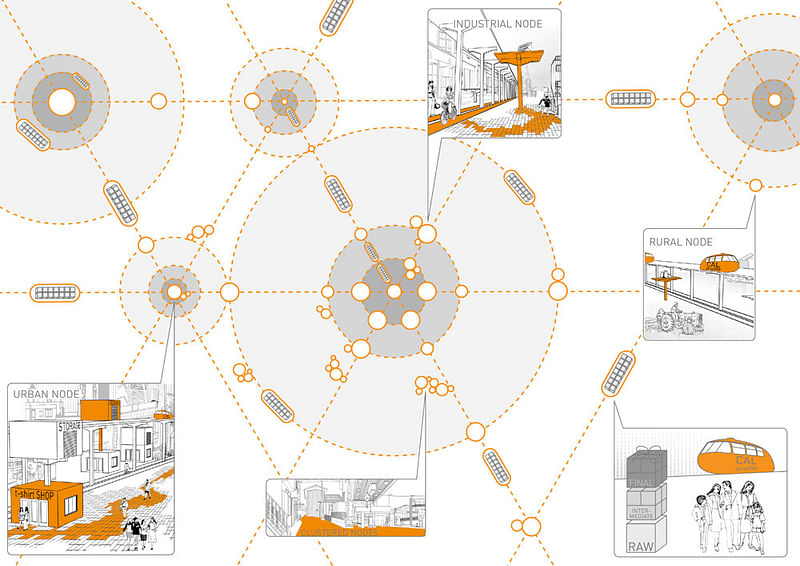
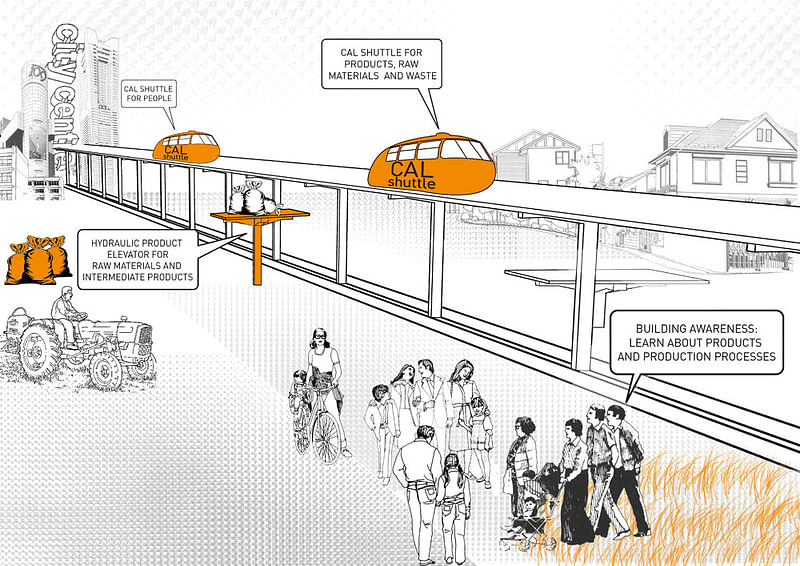
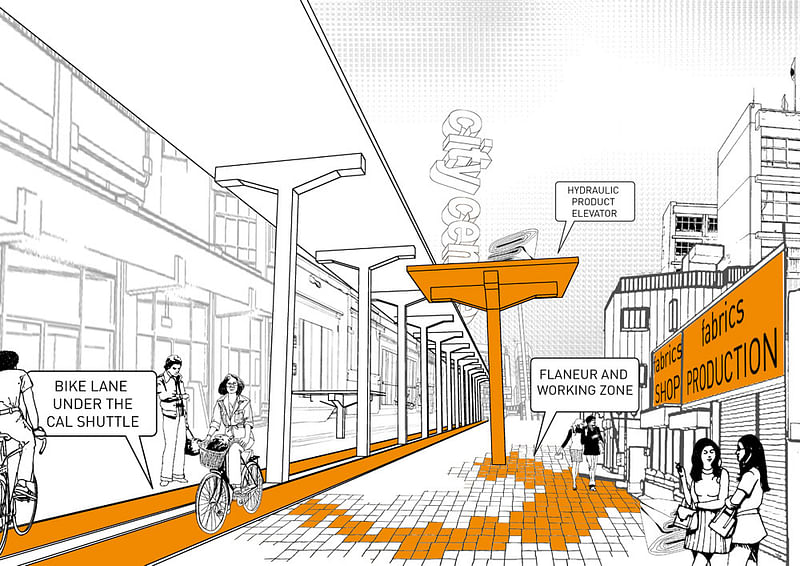
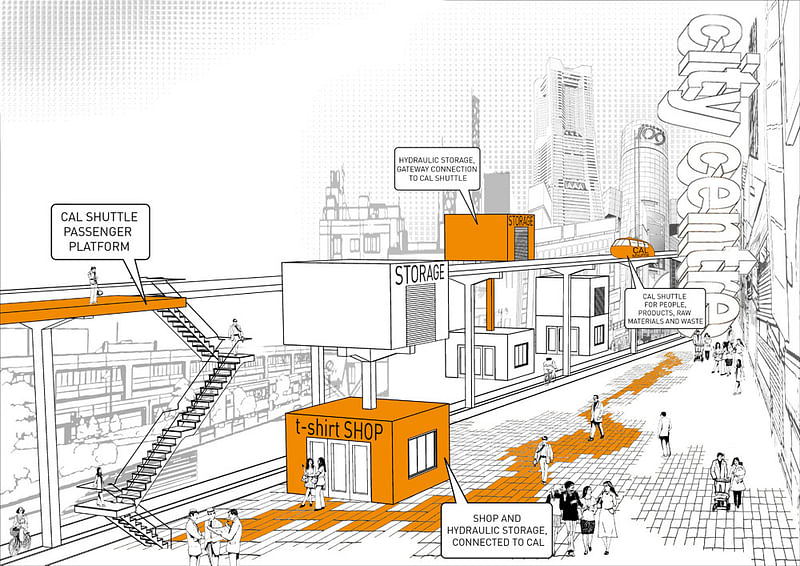
All images courtesy of POST+CAPITALIST CITY.

Share
0 Comments
Comment as :